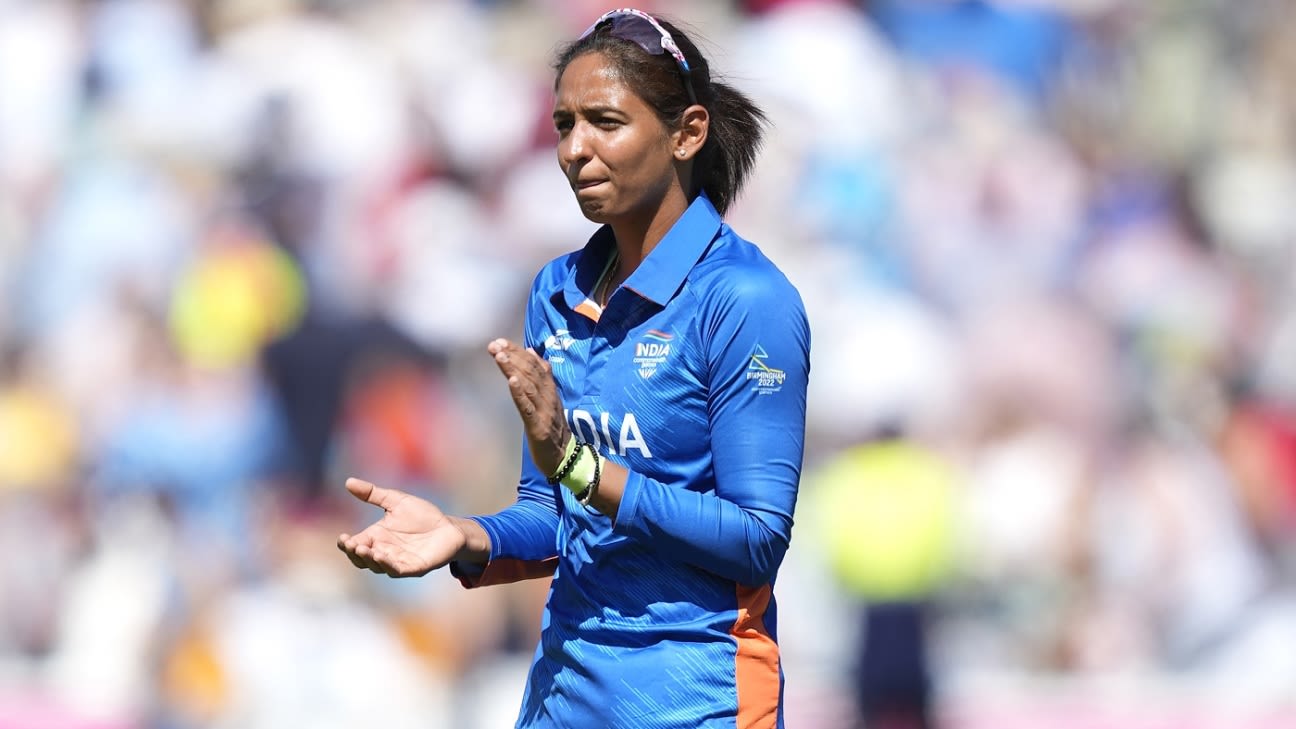Harmanpreet Kaur wants regular sports psychologist to address ‘mental fatigue’
“We as a team discuss a lot on these things,” Harmanpreet said on the eve of the first T20I against England. “Your performances go up and down, and it is better to take a break than pushing too hard in such times. As a team we want to help that player, and we are very open about players taking break when there is mental fatigue and things do not go as you want.”
Among the major tournaments this year, the month-long ODI World Cup ended in early April, before the Women’s T20 Challenge followed in the final week of May. Two months later, women’s cricket featured for the first time in the Commonwealth Games, where India made the final. Just four days after, the second season of the Hundred commenced to continue a busy calendar.
“Last year, I went through these things playing back-to-back cricket,” Harmanpreet said. “This year, we had the Commonwealth Games, and the Hundred was there [one after the other], but I wanted to take a break. Playing back to back does take a mental toll, and it is good to take a break at times [rather] than pushing too hard.”
“When we were on the New Zealand tour, [Bavare] was our go-to person and helped us a lot,” she said. “I hope in future also we can get her with us, because right now we are paying too much attention to our physical fitness and skills. But mental skill is something we need to take seriously.
“We represent our country, and there is a lot of pressure. Sometimes you only put so much pressure on yourself because you know your game and your ability, and what you can do your country. So sometimes expecting too much can also pull you back.
“In such times, if you can go to someone and express yourself and get some ideas about how to go about your own things, it will help you ease out.”
After making scores of 10, 10 and 13 in the first three ODIs against New Zealand in the lead-up to the World Cup, Harmanpreet was left out of the fourth game before she returned with 63 from 66 balls in the final match to help India to a consolation win. And just after that, she turned her form around in the World Cup, where she finished with 318 runs – at an average of 53 and a strike rate 91 – the second-most for India.
“I spent a lot of time with Mugdha, and got positive results. I started performing again, getting those runs I really wanted to get”
Harmanpreet on the presence of Dr. Mugdha Bavare as mental-health conditioning coach earlier this year
“She was there when I was going through a lot of things,” Harmanpreet said of Bavare. “She helped me a lot, and my family and friends were talking to me and telling me every day what I am and what I can bring to the team. I spent a lot of time with Mugdha, and got positive results. I started performing again, getting those runs I really wanted to get for my team.”
“How much ever big a player you are, after a point you need someone – a mental-skill coach – because mental health is as important as your physical fitness and skills,” Harmanpreet said. “We need to have someone always with us because that is one part that is easily ignored – not only in sports field but even out of the field.
“If we can go to people who can help us on the mental aspects, things get easier and you feel relaxed, and you feel you have more areas where you can go and express yourself.”
S Sudarshanan is a sub-editor at ESPNcricinfo
For all the latest Sports News Click Here

